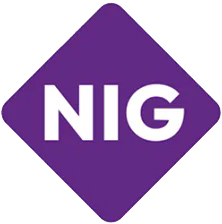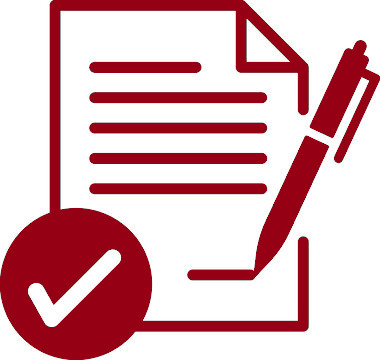We compare quotes from leading insurers
Protect Your Leather Goods Manufacturing Business with Specialist Insurance Coverage
Protect Your Leather Manufacturing Business
The leather goods manufacturing industry faces unique challenges from raw material volatility to strict quality standards and evolving consumer demands. Whether you produce luxury handbags, footwear, belts, or industrial leather products, your business needs specialized insurance coverage that understands the complexities of leather manufacturing.
At Insure24, we provide tailored insurance solutions for leather goods manufacturing of all sizes, from artisan workshops to large-scale production facilities. Our comprehensive coverage protects your business against the specific risks inherent in leather processing, manufacturing, and distribution.
Get Your Quote Today
Call us on 0330 127 2333 or visit our website for an instant quote
Get Quote OnlineComprehensive Coverage for Leather Manufacturing
- Product Liability Insurance - Essential protection against claims arising from defective leather goods, including skin reactions from chemical treatments, structural failures, or manufacturing defects that cause injury or property damage.
- Public Liability Insurance - Covers third-party injury or property damage on your premises, including visitors injured by machinery, chemical exposure, or slip hazards from leather processing operations.
- Employers Liability Insurance - Mandatory coverage protecting against employee injury claims, particularly important given exposure to chemicals, sharp tools, heavy machinery, and repetitive strain injuries common in leather manufacturing.
- Business Interruption Insurance - Protects your income when operations cease due to fire, flood, or other covered events. Crucial for maintaining cash flow during equipment repairs or facility restoration.
- Stock and Materials Cover - Protects raw leather, work-in-progress, and finished goods against fire, theft, flood, and contamination. Includes coverage for temperature-sensitive storage requirements.
- Machinery and Equipment Insurance - Covers specialized leather processing equipment including cutting machines, sewing equipment, tanning drums, drying systems, and finishing machinery against breakdown and damage.
- Professional Indemnity Insurance - Protects against claims of inadequate design, specification errors, or failure to meet customer requirements, particularly important for bespoke or contract manufacturing.
- Cyber Insurance - Essential protection for digital systems managing orders, inventory, customer data, and payment processing, including coverage for data breaches and system downtime.
- Goods in Transit Insurance - Covers leather goods during transportation to customers, retailers, or between facilities, protecting against theft, damage, or loss during delivery.
- Environmental Liability - Covers pollution incidents from chemical treatments, waste disposal, or accidental discharge of tanning agents and other processing chemicals.
Industry-Specific Risks We Cover
Manufacturing Risks
- Chemical exposure and allergic reactions
- Machinery accidents and equipment failure
- Fire from flammable materials and processes
- Quality control failures and defective products
- Raw material contamination or spoilage
Regulatory and Compliance
- Environmental regulations for chemical use
- Health and safety compliance failures
- Product safety standard violations
- Waste disposal regulation breaches
- Import/export compliance issues
Supply Chain Disruption
- Raw hide and leather supply shortages
- Chemical and dye supply interruptions
- Transportation delays and damage
- Supplier quality issues
- Currency fluctuation affecting imports
Market and Seasonal Risks
- Fashion trend changes affecting demand
- Seasonal sales fluctuations
- Economic downturns reducing luxury spending
- Competition from synthetic alternatives
- Ethical sourcing pressure
Why Choose Insure24 for Your Leather Manufacturing Insurance
- Industry Expertise - Our team understands the unique challenges of leather manufacturing, from artisan workshops to industrial-scale operations.
- Tailored Coverage - We customize policies to match your specific manufacturing processes, products, and risk profile.
- Competitive Premiums - Access to multiple insurers ensures competitive pricing without compromising on coverage quality.
- Risk Management Support - Guidance on implementing safety measures and best practices to reduce risks and potentially lower premiums.
- Claims Expertise - Experienced claims handling with understanding of manufacturing processes and industry-specific issues.
- Flexible Payment Options - Monthly payment plans available to help manage cash flow alongside your business operations.
How to Get Your Leather Manufacturing Insurance Quote
- 1. Initial Consultation - Contact us to discuss your manufacturing operations, products, and specific insurance needs.
- 2. Risk Assessment - We evaluate your premises, processes, equipment, and potential exposures to determine appropriate coverage.
- 3. Quote Preparation - Our experts prepare tailored quotes from multiple insurers, comparing coverage and pricing options.
- 4. Policy Selection - We help you choose the most suitable policy that provides comprehensive protection at competitive rates.
- 5. Policy Implementation - Quick policy setup with immediate cover and all necessary documentation provided.
- 6. Ongoing Support - Regular policy reviews and claims support throughout your policy term.
Regulatory Compliance and Standards
Leather goods manufacturing must comply with various regulations and standards. Our insurance coverage helps protect against compliance-related risks:
Health and Safety
COSHH regulations for chemical handling, machinery safety standards, and workplace safety requirements.
Environmental Regulations
Waste disposal requirements, chemical discharge limits, and environmental impact assessments.
Product Safety Standards
CE marking requirements, chemical restrictions (REACH), and consumer product safety regulations.
Quality Certifications
ISO 9001 quality management, leather industry standards, and customer-specific requirements.

"Insure24 understood our artisan leather workshop needs perfectly. When we had a fire damage claim, they handled everything professionally and got us back in production quickly.
Sarah M., Bespoke Leather Goods ManufacturerWhy Choose Insure24 for Leather Goods Manufacturing Insurance?
- Specialist Knowledge - We understand the unique risks facing leather goods manufacturing operators
- Comprehensive Coverage - Multiple insurance products designed to work together
- Competitive Pricing - Tailored quotes based on your specific venue and operations
- Expert Support - Dedicated team available when you need us most
- Quick Claims - Fast response when incidents occur
- FCA Regulated - Authorized and regulated by the Financial Conduct Authority
Protect Your Leather Goods Manufacturing Business with Specialist Insurance Coverage
Get Your Leather Goods Manufacturing Insurance Quote Today
Don't leave your leather goods manufacturing business exposed to unnecessary risks.
Our specialist team will assess your venue's unique needs and provide a comprehensive insurance solution that protects your business, your customers, and your livelihood.
Call us now: 0330 127 2333
Or get an instant online quote at insure24.co.uk
FREQUENTLY ASKED QUESTIONS
+-
+-
What types of leather manufacturing businesses do you insure?
We insure all types of leather manufacturing including handbag makers, footwear manufacturing, belt and accessory producers, upholstery manufacturing, industrial leather goods makers, and artisan leather workshops.
+-
Is product liability insurance mandatory for leather manufacturing?
While not legally required, product liability insurance is essential for leather manufacturing as defective products can cause skin reactions, injuries, or property damage, leading to significant claims.
+-
How much does leather manufacturing insurance cost?
Costs vary based on factors including business size, products manufactured, annual turnover, claims history, and coverage requirements. We provide competitive quotes tailored to your specific needs.
+-
What chemicals and processes are covered under the policy?
Coverage typically includes standard tanning chemicals, dyes, finishes, and adhesives used in leather manufacturing. Exotic or highly hazardous chemicals may require specific coverage arrangements.
+-
Does the insurance cover imported raw materials?
Yes, our policies can include coverage for imported hides and leather, including protection against quality issues, contamination, and transit risks.
+-
Are seasonal fluctuations in production covered?
Business interruption coverage can be adjusted to account for seasonal variations in production and sales, ensuring appropriate compensation during covered events.
+-
What about coverage for custom or bespoke leather goods?
Professional indemnity insurance covers design errors and failure to meet specifications for custom work, while product liability covers any defects in bespoke items.
+-
How are machinery breakdowns handled?
Machinery insurance covers repair or replacement of specialized leather processing equipment, plus business interruption costs during the repair period.
+-
Does cyber insurance cover e-commerce operations?
Yes, cyber insurance protects online sales platforms, customer databases, payment systems, and covers costs associated with data breaches or system downtime.
+-
What documentation is needed for a quote?
We typically need details about your manufacturing processes, annual turnover, number of employees, premises information, products manufactured, export markets, and any previous claims history.
+-
Are apprentices and trainees covered under employers liability?
Yes, employers liability insurance covers all workers including apprentices, trainees, and temporary staff working in your leather manufacturing facility.
+-
How does coverage work for contract manufacturing?
Policies can be tailored to cover contract manufacturing arrangements, including liability for products made to third-party specifications and intellectual property considerations.
+-
What about coverage for trade shows and exhibitions?
Public liability insurance typically extends to cover trade shows and exhibitions where you display your leather goods, including product demonstrations and sampling.
+-
Are recalls covered if products are found to be defective?
Product recall insurance can be included to cover the costs of recalling defective leather goods, including notification costs, return shipping, and replacement products.
+-
How quickly can coverage be arranged?
Once we have all necessary information, we can often arrange immediate coverage with full policy documentation following within 24-48 hours.
+-
What happens if I expand into new product lines?
Your policy can be adjusted to cover new leather products or manufacturing processes. It's important to notify us before launching new product lines to ensure continuous coverage.
+-
Are home-based leather workshops covered?
Yes, we can arrange coverage for home-based leather manufacturing businesses, though this may require specific policy arrangements due to residential property considerations.
+-
Does the policy cover intellectual property disputes?
Professional indemnity insurance can include coverage for intellectual property disputes related to design copying or patent infringement claims in leather goods manufacturing.
+-
What about coverage for waste disposal issues?
Environmental liability insurance covers costs associated with improper waste disposal, including cleanup costs and regulatory fines for leather manufacturing waste.
+-
Are there discounts available for good safety records?
Many insurers offer premium discounts for manufacturing with good health and safety records, proper training programs, and effective risk management procedures.
+-
How are claims assessed for leather manufacturing businesses?
Claims are assessed by specialists who understand leather manufacturing processes, ensuring fair evaluation of manufacturing-related incidents and appropriate settlements.
+-
Can I get coverage for international sales?
Yes, product liability and other coverages can be extended to include international sales, though some territories may require specific policy arrangements or local insurance.
+-
What about coverage during facility moves or expansions?
Policies can be arranged to provide continuous coverage during facility relocations or expansions, ensuring no gaps in protection during transition periods.
+-
Are there specific exclusions I should be aware of?
Common exclusions include wear and tear, gradual deterioration, intentional damage, and certain high-risk processes. We'll clearly explain all exclusions before you purchase your policy.
+-
How do I make changes to my policy during the term?
Policy changes can be made at any time by contacting us. Changes may result in premium adjustments, and we'll provide clear documentation of any modifications.
+-
What support is available for risk management?
We provide guidance on implementing safety procedures, chemical handling protocols, equipment maintenance schedules, and other risk reduction measures specific to leather manufacturing.
+-
Can I combine different types of coverage in one policy?
Yes, we can arrange combined policies that include multiple coverage types, often providing cost savings compared to separate individual policies while simplifying administration.
+-
What is the average cost of leather manufacturing insurance in the UK?
Leather manufacturing insurance costs typically range from £500-£5,000 annually depending on business size, turnover, products manufactured, and coverage requirements. Small artisan workshops may pay less, while large industrial manufacturing require higher coverage limits.
+-
Do I need separate insurance for leather handbag manufacturing?
Handbag manufacturing need specialized product liability coverage due to higher consumer interaction risks, including allergic reactions to dyes and hardware failures. Fashion accessory manufacturing also requires coverage for design infringement claims.
+-
What insurance covers leather manufacturing fire risks?
Fire insurance for leather manufacturing must cover flammable chemicals, dust accumulation, electrical equipment, and heat processes. Enhanced coverage includes business interruption, alternative accommodation, and specialized fire suppression system requirements.
+-
Do leather manufacturing need flood insurance coverage?
Flood insurance is crucial for ground-floor manufacturing facilities, covering equipment damage, stock contamination, and business interruption. Chemical storage areas require special consideration for environmental contamination risks during flooding.
+-
What insurance do leather manufacturing partnerships need?
Partnership agreements require coverage for joint ventures, shared liability exposures, and dissolution protection. Professional indemnity should cover all partners' actions, while key person insurance protects against partner incapacity.
+-
How does leather manufacturing export market affect insurance?
Export markets require product liability coverage in destination countries, currency fluctuation protection, and compliance with international standards. Some markets may require local insurance certificates or specific coverage arrangements.
+-
What insurance covers leather manufacturing theft and security?
Theft insurance covers finished goods, raw materials, and equipment. Enhanced security measures like CCTV and alarms may reduce premiums. Coverage should include employee theft and cyber theft of customer data.
+-
Do leather manufacturing need employment practices liability insurance?
Employment practices liability covers discrimination, harassment, and wrongful termination claims. Manufacturing environments with diverse workforces and apprenticeship programs may face higher exposure requiring specialized coverage.
+-
What insurance covers leather manufacturing contract disputes?
Commercial legal expenses insurance covers contract disputes with suppliers, customers, and employees. Professional indemnity may cover specification disputes, while trade credit insurance protects against customer insolvency.
+-
How does leather manufacturing waste management affect insurance?
Waste management requires environmental liability coverage for disposal violations, contamination cleanup, and regulatory fines. Proper waste segregation and licensed disposal contractors may reduce premium costs.
+-
What insurance do leather manufacturing consultants need?
Manufacturing consultants need professional indemnity for advice errors, public liability for site visits, and cyber insurance for client data protection. Coverage should include recommendations that lead to financial losses.
+-
Do leather manufacturing need business interruption for power outages?
Power outage coverage is essential for temperature-controlled storage, continuous processes, and computer systems. Coverage should include spoiled materials, restart costs, and alternative power generation expenses.
+-
What insurance covers leather manufacturing research and development?
R&D activities need professional indemnity for development errors, product liability for prototype testing, and intellectual property insurance for patent applications. Environmental liability covers experimental chemical processes.
+-
How does leather manufacturing age affect insurance costs?
Established manufacturing often benefit from lower premiums due to proven track records and stable operations. New manufacturing may face higher initial premiums but can reduce costs through good claims history and risk management.
+-
What insurance do leather manufacturing franchises need?
Franchise operations need coverage aligned with franchisor requirements, including specific liability limits and additional insured endorsements. Master policies may be available for multi-location franchise operations.
+-
Do leather manufacturing need terrorism insurance coverage?
Terrorism insurance may be required for high-value facilities or those in sensitive locations. Coverage includes property damage, business interruption, and potential contamination from chemical terrorism affecting manufacturing processes.
+-
What insurance covers leather manufacturing temperature control failures?
Temperature control failures can spoil leather and chemicals, requiring specialized coverage for refrigeration breakdown, humidity control failures, and resulting product contamination or degradation.
+-
How does leather manufacturing staff training affect insurance?
Comprehensive staff training programs often reduce premiums by demonstrating risk management commitment. Training records may be required for claims involving employee errors or safety violations.
+-
What insurance do leather manufacturing joint ventures need?
Joint ventures require careful coordination of insurance coverage between partners, including cross-liability protection, shared limits arrangements, and clear responsibility allocation for different operational aspects.
+-
Do leather manufacturing need pandemic business interruption insurance?
Pandemic coverage has become increasingly important, covering losses from government-mandated closures, supply chain disruptions, and workforce unavailability. Standard policies may exclude pandemic risks requiring specific endorsements.
+-
What insurance covers leather manufacturing regulatory changes?
Regulatory change coverage helps with compliance costs for new environmental, safety, or product standards. Professional indemnity may cover advice on regulatory compliance, while business interruption covers adaptation periods.
+-
How does leather manufacturing location security affect premiums?
Secure locations with proper lighting, fencing, and alarm systems typically receive premium discounts. High-crime areas may require enhanced security measures or face coverage restrictions for theft-related claims.
+-
What types of leather manufacturing businesses do you insure?
We insure all types of leather manufacturing including handbag makers, footwear manufacturing, belt and accessory producers, upholstery manufacturing, industrial leather goods makers, and artisan leather workshops.
+-
Is product liability insurance mandatory for leather manufacturing?
While not legally required, product liability insurance is essential for leather manufacturing as defective products can cause skin reactions, injuries, or property damage, leading to significant claims.
+-
How much does leather manufacturing insurance cost?
Costs vary based on factors including business size, products manufactured, annual turnover, claims history, and coverage requirements. We provide competitive quotes tailored to your specific needs.
+-
What chemicals and processes are covered under the policy?
Coverage typically includes standard tanning chemicals, dyes, finishes, and adhesives used in leather manufacturing. Exotic or highly hazardous chemicals may require specific coverage arrangements.
+-
Does the insurance cover imported raw materials?
Yes, our policies can include coverage for imported hides and leather, including protection against quality issues, contamination, and transit risks.
+-
Are seasonal fluctuations in production covered?
Business interruption coverage can be adjusted to account for seasonal variations in production and sales, ensuring appropriate compensation during covered events.
+-
What about coverage for custom or bespoke leather goods?
Professional indemnity insurance covers design errors and failure to meet specifications for custom work, while product liability covers any defects in bespoke items.
+-
How are machinery breakdowns handled?
Machinery insurance covers repair or replacement of specialized leather processing equipment, plus business interruption costs during the repair period.
+-
Does cyber insurance cover e-commerce operations?
Yes, cyber insurance protects online sales platforms, customer databases, payment systems, and covers costs associated with data breaches or system downtime.
+-
What documentation is needed for a quote?
We typically need details about your manufacturing processes, annual turnover, number of employees, premises information, products manufactured, export markets, and any previous claims history.
+-
Are apprentices and trainees covered under employers liability?
Yes, employers liability insurance covers all workers including apprentices, trainees, and temporary staff working in your leather manufacturing facility.
+-
How does coverage work for contract manufacturing?
Policies can be tailored to cover contract manufacturing arrangements, including liability for products made to third-party specifications and intellectual property considerations.
+-
What about coverage for trade shows and exhibitions?
Public liability insurance typically extends to cover trade shows and exhibitions where you display your leather goods, including product demonstrations and sampling.
+-
Are recalls covered if products are found to be defective?
Product recall insurance can be included to cover the costs of recalling defective leather goods, including notification costs, return shipping, and replacement products.
+-
How quickly can coverage be arranged?
Once we have all necessary information, we can often arrange immediate coverage with full policy documentation following within 24-48 hours.
+-
What happens if I expand into new product lines?
Your policy can be adjusted to cover new leather products or manufacturing processes. It's important to notify us before launching new product lines to ensure continuous coverage.
+-
Are home-based leather workshops covered?
Yes, we can arrange coverage for home-based leather manufacturing businesses, though this may require specific policy arrangements due to residential property considerations.
+-
Does the policy cover intellectual property disputes?
Professional indemnity insurance can include coverage for intellectual property disputes related to design copying or patent infringement claims in leather goods manufacturing.
+-
What about coverage for waste disposal issues?
Environmental liability insurance covers costs associated with improper waste disposal, including cleanup costs and regulatory fines for leather manufacturing waste.
+-
Are there discounts available for good safety records?
Many insurers offer premium discounts for manufacturing with good health and safety records, proper training programs, and effective risk management procedures.
+-
How are claims assessed for leather manufacturing businesses?
Claims are assessed by specialists who understand leather manufacturing processes, ensuring fair evaluation of manufacturing-related incidents and appropriate settlements.
+-
Can I get coverage for international sales?
Yes, product liability and other coverages can be extended to include international sales, though some territories may require specific policy arrangements or local insurance.
+-
What about coverage during facility moves or expansions?
Policies can be arranged to provide continuous coverage during facility relocations or expansions, ensuring no gaps in protection during transition periods.
+-
Are there specific exclusions I should be aware of?
Common exclusions include wear and tear, gradual deterioration, intentional damage, and certain high-risk processes. We'll clearly explain all exclusions before you purchase your policy.
+-
How do I make changes to my policy during the term?
Policy changes can be made at any time by contacting us. Changes may result in premium adjustments, and we'll provide clear documentation of any modifications.
+-
What support is available for risk management?
We provide guidance on implementing safety procedures, chemical handling protocols, equipment maintenance schedules, and other risk reduction measures specific to leather manufacturing.
+-
Can I combine different types of coverage in one policy?
Yes, we can arrange combined policies that include multiple coverage types, often providing cost savings compared to separate individual policies while simplifying administration.
+-
What is the average cost of leather manufacturing insurance in the UK?
Leather manufacturing insurance costs typically range from £500-£5,000 annually depending on business size, turnover, products manufactured, and coverage requirements. Small artisan workshops may pay less, while large industrial manufacturing require higher coverage limits.
+-
Do I need separate insurance for leather handbag manufacturing?
Handbag manufacturing need specialized product liability coverage due to higher consumer interaction risks, including allergic reactions to dyes and hardware failures. Fashion accessory manufacturing also requires coverage for design infringement claims.
+-
What insurance covers leather manufacturing fire risks?
Fire insurance for leather manufacturing must cover flammable chemicals, dust accumulation, electrical equipment, and heat processes. Enhanced coverage includes business interruption, alternative accommodation, and specialized fire suppression system requirements.
+-
Do leather manufacturing need flood insurance coverage?
Flood insurance is crucial for ground-floor manufacturing facilities, covering equipment damage, stock contamination, and business interruption. Chemical storage areas require special consideration for environmental contamination risks during flooding.
+-
What insurance do leather manufacturing partnerships need?
Partnership agreements require coverage for joint ventures, shared liability exposures, and dissolution protection. Professional indemnity should cover all partners' actions, while key person insurance protects against partner incapacity.
+-
How does leather manufacturing export market affect insurance?
Export markets require product liability coverage in destination countries, currency fluctuation protection, and compliance with international standards. Some markets may require local insurance certificates or specific coverage arrangements.
+-
What insurance covers leather manufacturing theft and security?
Theft insurance covers finished goods, raw materials, and equipment. Enhanced security measures like CCTV and alarms may reduce premiums. Coverage should include employee theft and cyber theft of customer data.
+-
Do leather manufacturing need employment practices liability insurance?
Employment practices liability covers discrimination, harassment, and wrongful termination claims. Manufacturing environments with diverse workforces and apprenticeship programs may face higher exposure requiring specialized coverage.
+-
What insurance covers leather manufacturing contract disputes?
Commercial legal expenses insurance covers contract disputes with suppliers, customers, and employees. Professional indemnity may cover specification disputes, while trade credit insurance protects against customer insolvency.
+-
How does leather manufacturing waste management affect insurance?
Waste management requires environmental liability coverage for disposal violations, contamination cleanup, and regulatory fines. Proper waste segregation and licensed disposal contractors may reduce premium costs.
+-
What insurance do leather manufacturing consultants need?
Manufacturing consultants need professional indemnity for advice errors, public liability for site visits, and cyber insurance for client data protection. Coverage should include recommendations that lead to financial losses.
+-
Do leather manufacturing need business interruption for power outages?
Power outage coverage is essential for temperature-controlled storage, continuous processes, and computer systems. Coverage should include spoiled materials, restart costs, and alternative power generation expenses.
+-
What insurance covers leather manufacturing research and development?
R&D activities need professional indemnity for development errors, product liability for prototype testing, and intellectual property insurance for patent applications. Environmental liability covers experimental chemical processes.
+-
How does leather manufacturing age affect insurance costs?
Established manufacturing often benefit from lower premiums due to proven track records and stable operations. New manufacturing may face higher initial premiums but can reduce costs through good claims history and risk management.
+-
What insurance do leather manufacturing franchises need?
Franchise operations need coverage aligned with franchisor requirements, including specific liability limits and additional insured endorsements. Master policies may be available for multi-location franchise operations.
+-
Do leather manufacturing need terrorism insurance coverage?
Terrorism insurance may be required for high-value facilities or those in sensitive locations. Coverage includes property damage, business interruption, and potential contamination from chemical terrorism affecting manufacturing processes.
+-
What insurance covers leather manufacturing temperature control failures?
Temperature control failures can spoil leather and chemicals, requiring specialized coverage for refrigeration breakdown, humidity control failures, and resulting product contamination or degradation.
+-
How does leather manufacturing staff training affect insurance?
Comprehensive staff training programs often reduce premiums by demonstrating risk management commitment. Training records may be required for claims involving employee errors or safety violations.
+-
What insurance do leather manufacturing joint ventures need?
Joint ventures require careful coordination of insurance coverage between partners, including cross-liability protection, shared limits arrangements, and clear responsibility allocation for different operational aspects.
+-
Do leather manufacturing need pandemic business interruption insurance?
Pandemic coverage has become increasingly important, covering losses from government-mandated closures, supply chain disruptions, and workforce unavailability. Standard policies may exclude pandemic risks requiring specific endorsements.
+-
What insurance covers leather manufacturing regulatory changes?
Regulatory change coverage helps with compliance costs for new environmental, safety, or product standards. Professional indemnity may cover advice on regulatory compliance, while business interruption covers adaptation periods.
+-
How does leather manufacturing location security affect premiums?
Secure locations with proper lighting, fencing, and alarm systems typically receive premium discounts. High-crime areas may require enhanced security measures or face coverage restrictions for theft-related claims.


 0330 127 2333
0330 127 2333






